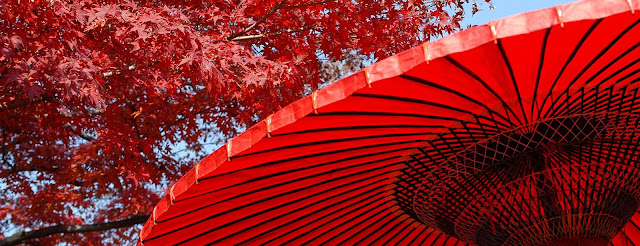Hello. I'm Kosuke!
Today, let's learn how to say "he" and "she" in Japanese!
1. Summary
Basically, "he" and "she" are "かれ(kare)" and "かのじょ(kanojo)" in Japanese.
| English | Japanese | Romaji | Kanji |
|---|---|---|---|
| he | かれ | ka re | 彼 |
| she | かのじょ | ka no jo | 彼女 |
However, "かれ(kare)" and "かのじょ(kanojo)" also have the meaning "boyfriend" and "girlfriend" in Japanese.
Let's check how to use "かれ(kare)" and "かのじょ(kanojo)" from this article!
As you can see from the table above, "かれ(kare)" means "he", and "かのじょ(kanojo)" means "she".
In English, "he" sometimes changes its form to "his" and "him".
Also, "she" sometimes becomes "her".
As we learned in the past article, regarding "I, my, me, and mine", in Japanese, we use particles with the pronouns.
| English | Japanese | Romaji | Kanji |
|---|---|---|---|
| he | かれ(は) | ka re (wa) | 彼(は) |
| his | かれの | ka re no | 彼の |
| him | かれを (かれに) | ka re wo (ka re ni) | 彼を (彼に) |
| English | Japanese | Romaji | Kanji |
|---|---|---|---|
| she | かのじょ(は) | ka no jo (wa) | 彼女(は) |
| her (possessive case) | かのじょの | ka no jo no | 彼女の |
| her (objective case) | かのじょを (かのじょに) | ka no jo wo (ka no jo ni) | 彼女を (彼女に) |
If you don't know the particle "は(wa)", please check this:
If you don't know the particle "の(no)", please check this:
If you don't know the particle "を(wo)", please check this:
These particles can be used generally.
So once you remember them, you can use them for every noun in Japanese.
Let's check example sentences for "kare" and "kanojo"!
Examples:
かれは あかるいです。
ka re wa a ka ru i de su
Meaning: "He is cheerful."
If you don't know the adjective "あかるい(akarui)", please check this:
かのじょは せがたかいです。
ka no jo wa se ga ta ka i de su
Meaning: "She is tall."
If you don't know how to say "tall" in Japanese, please check this:
かれの なまえは さすけです。
ka re no na ma e wa sa su ke de su
Meaning: "His name is Sasuke."
なまえ: name
If you want to know how to introduce your name in Japanese, please check this:
かのじょの りょうりは おいしいです。
ka no jo no ryo u ri wa o i shi i de su
Meaning: "Her cooking is delicious."
りょうり: cooking, dish, food, cuisine
If you want to know how to say "delicious" in Japanese, please check this:
かのじょは かれを たたいた。
ka no jo wa ka re wo ta ta i ta
Meaning: "She hit him."
たたいた: hit (past tense)
ひとびとは かのじょを くのいちと よんだ。
hi to bi to wa ka no jo wo ku no i chi to yo n da
Meaning: "People called her Kunoichi."
ひとびと: people
くのいち: Kunoichi (woman ninja)
よんだ: called
Like the examples above, please use "かれ(kare)" and "かのじょ(kanojo)" with particles, depending on the context.
In Japanese, "かれ(kare)" and "かのじょ(kanojo)" have the meaning of "boyfriend" and "girlfriend".
With this usage, sometimes we say "かれし(kareshi)" instead of "かれ(kare)".
Let's check the examples!
Examples:
わたしの かれは つめたい。
wa ta shi no ka re wa tsu me ta i
Meaning: "My boyfriend is cold-hearted."
If you want to know more about "つめたい(tsumetai)", please check this:
Like the example above, "かれ(kare)" can mean "boyfriend".
わたしの かれしは つめたい。
wa ta shi no ka re shi wa tsu me ta i
Meaning: "My boyfriend is cold-hearted."
Like the example above, "かれ(kare)" and "かれし(kareshi)" have the same meaning.
かのじょは ねている。
ka no jo wa ne te i ru
Meaning: "My girlfriend is sleeping."
ねている: is sleeping
If you want to know how to say "sleep" in Japanese, please check this:
Regarding this example, you can translate to "She is sleeping" instead of "My girlfriend is sleeping".
There is no way to know whether this "kanojo" is "she" or "girlfriend".
You need to judge it based on context.
"Kareshi" only has the meaning of "boyfriend".
So you can know the meaning without thinking about the context.
However, if "kare" is used, you need to judge the meaning from the context.
"He" is "kare" in Japanese!
"She" is "kanojo" in Japanese!
| English | Japanese | Romaji | Kanji |
|---|---|---|---|
| he | かれ | ka re | 彼 |
| she | かのじょ | ka no jo | 彼女 |
These words are used with Japanese particles!
"Kare" can also mean "boyfriend"!
"Kanojo" can also mean "girlfriend"!
I hope this article helps you to study Japanese!
Please enjoy studying Japanese!

























No comments:
Post a Comment